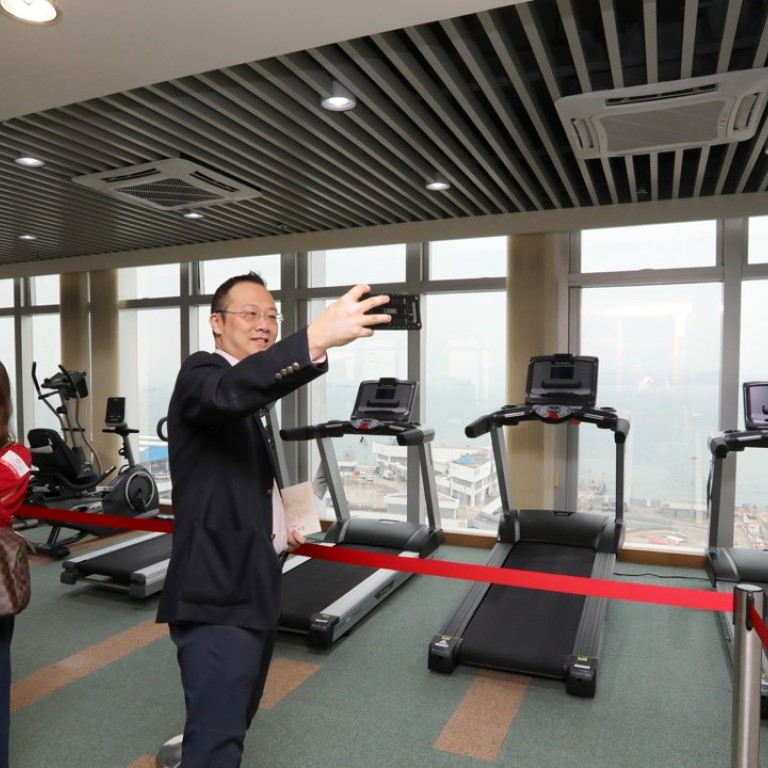
Beijing’s liaison office in Hong Kong dismisses ‘intervention’ claims at first open day event
Staff at central government branch in city seek to dispel misconceptions about their work while allowing visitors to tour premises for first time
The central government’s top organisation in Hong Kong opened its doors to the public for the first time on Saturday to demystify its functions and build trust with locals, even as it made clear its job was to keep a close watch on the city’s affairs.
Wang added that Hongkongers were not familiar with his team and that the office could seem “secretive to them”.
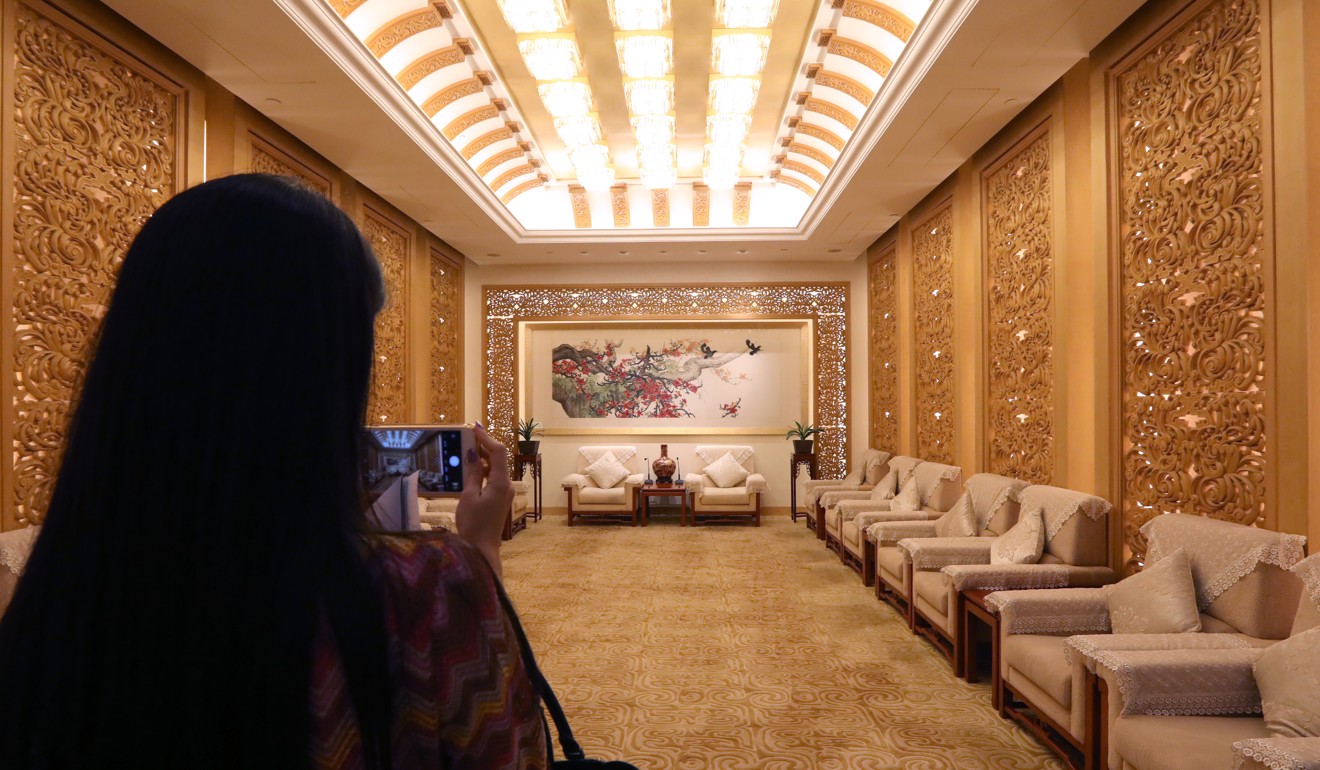
Liaising with all parties is part of our job description, and we are doing it out of goodwill
“We take note of many aspects of Hong Kong,” she added.
Wang rejected claims their work amounted to “intervening” in local affairs.
“Liaising with all parties is part of our job description, and we are doing it out of goodwill. How could that be intervening?”
Another officer from the legal team said they studied court verdicts and important legislative proposals, particularly those with possible constitutional implications.
The office’s efforts to understand all aspects of Hong Kong were evident in its staff library.
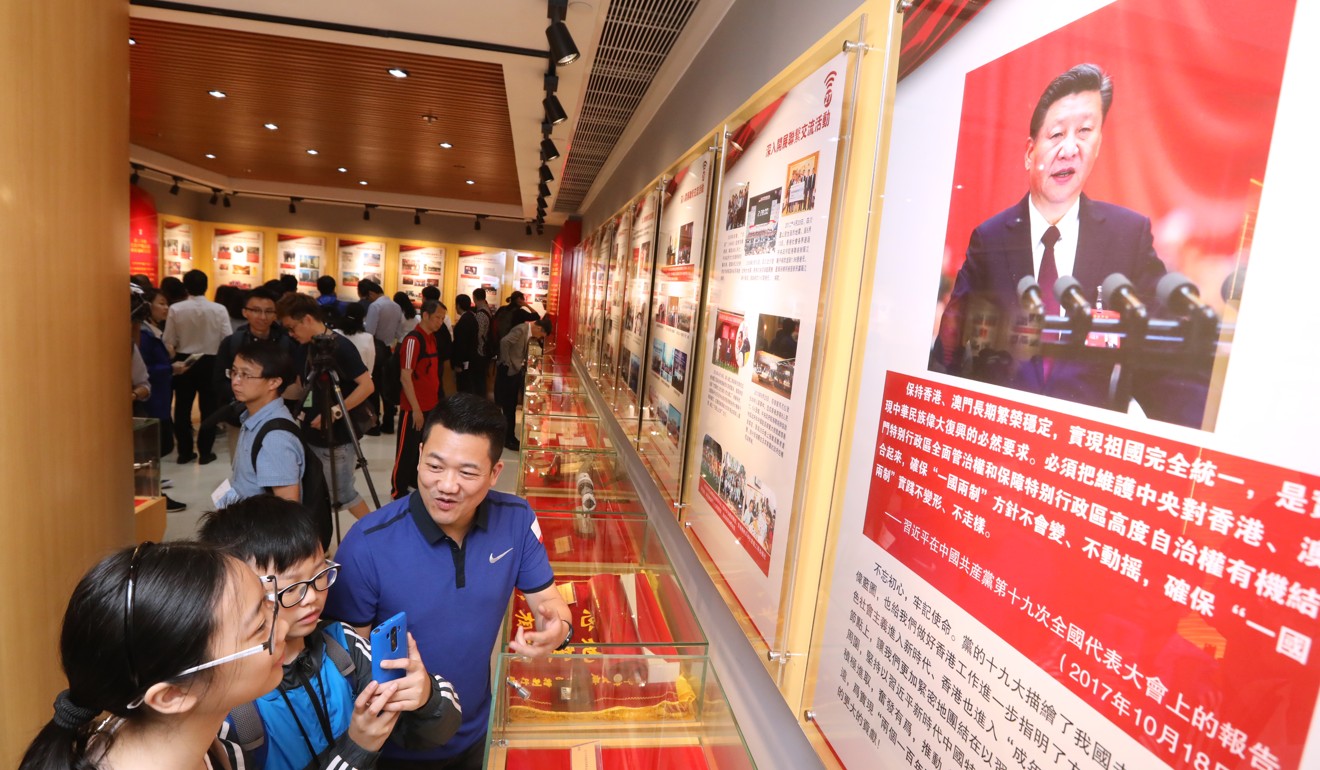
Reporters were given a guided tour to reception areas as well as recreation rooms for snooker and table tennis. Liaison staff played games with the visitors, who were also invited to view the office canteen. Subsidised meals are offered for as low as HK$6 (75 US cents).
The office did not provide an official headcount of its employees, but media reports in 2013 put the figure at more than 500. Staff are normally assigned to work in the city for between three and five years.
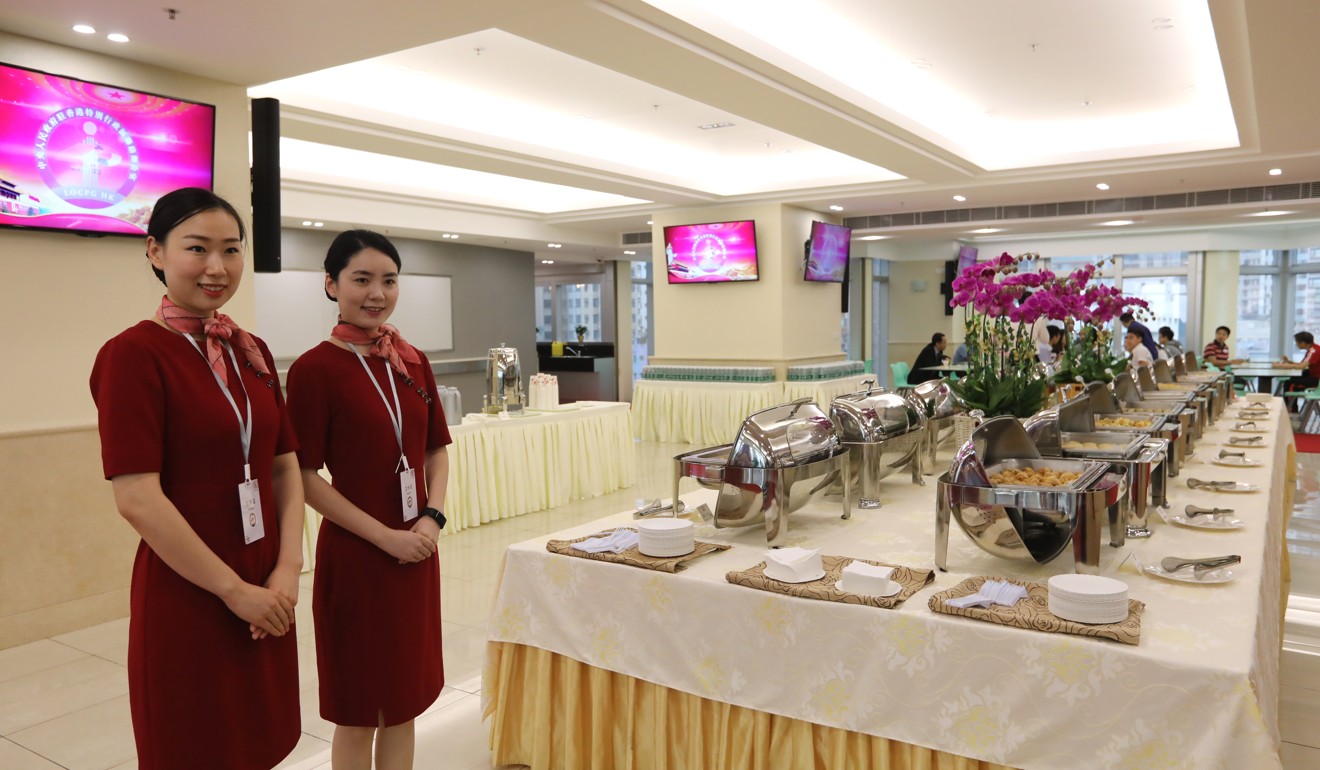
Publicity officer Huang Jinliang grinned as he told reporters he lived in a 300 sq ft dormitory.
“It’s really quite small when compared with living on the mainland.”
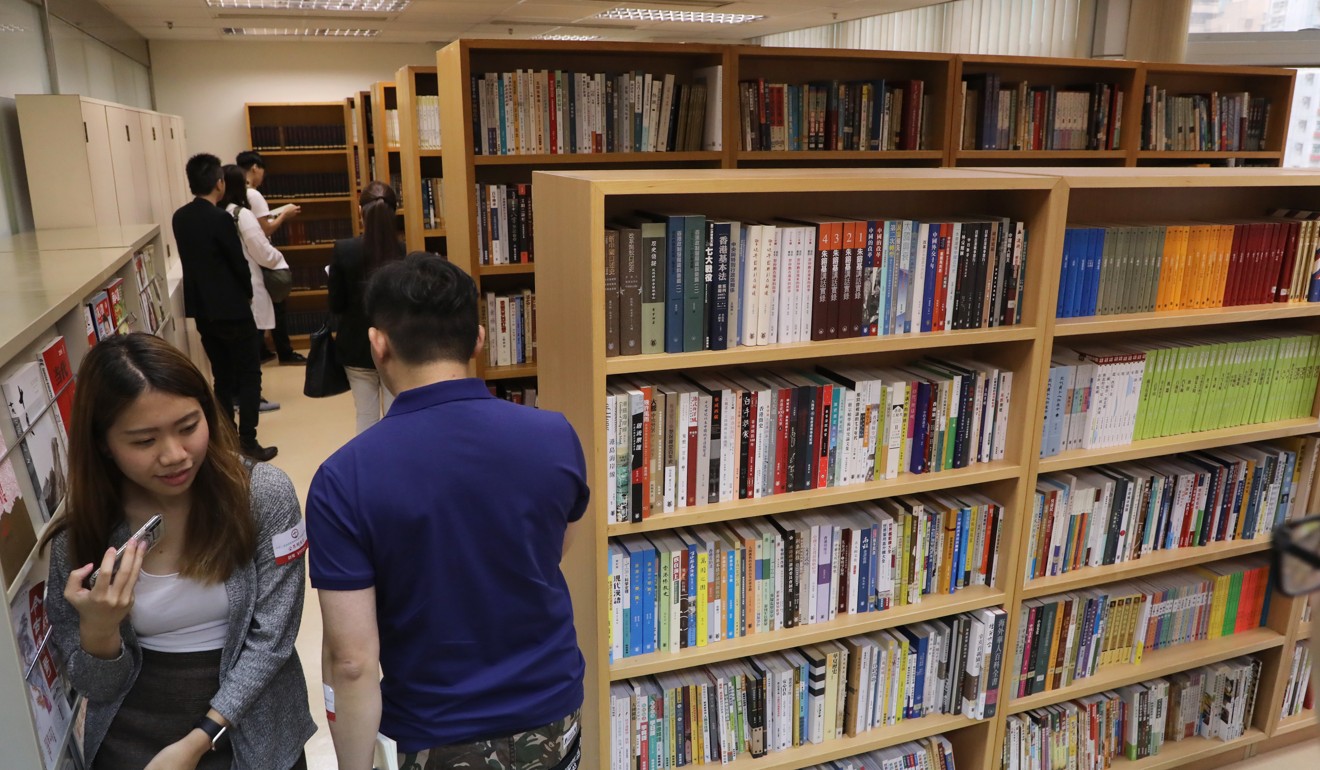
However, some city residents living nearby believed the event was not as accessible as it should have been. A Hongkonger surnamed Fong claimed he was denied entry after being told “all tickets are delivered”.
Fong said the office was “obviously too frightened to completely open up”.
If ignorance is not the reason, why do young Hongkongers still dislike mainland China?
“Why did they just select relatives and friends to come? It’s just putting on a show, and everybody knows that.”
Wang Zhimin said the office would consider allowing more people to visit the premises in the future. Another open day is now slated for October.

